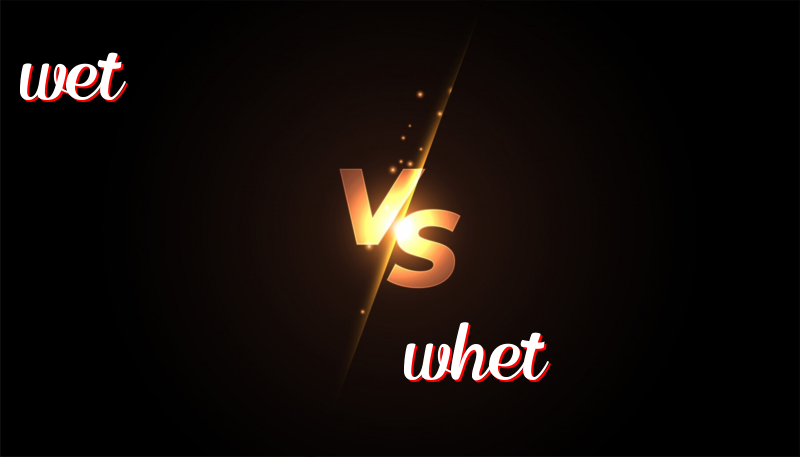英語單詞wet 與 whet的區別
October 15, 2024
「Wet」vs「Whet」的差異
在學習英語時,一些字詞可能會讓人感到混淆,尤其是當它們聽起來相似但意義卻完全不同的時候。「Wet」和「Whet」就是這樣的一對詞彙。讓我們來詳細了解這兩個詞的歷史、用法,以及一些記憶技巧。
歷史背景
Wet:「Wet」源於古英語「wæt」,意思是「被水覆蓋或飽含水分」。這個詞指的是任何潮濕的情況或物品。
Whet:「Whet」的起源可追溯到古英語「hwettan」,意指「使鋒利或刺激」。這個詞通常用於表示磨利工具或激發某種渴望。
如何使用它們
Wet:
- The grass is wet from the morning dew.
草地被清晨的露水打濕了。 - He got wet in the rain because he forgot his umbrella.
他因為忘了帶傘而被雨淋濕了。 - The paint is still wet; don’t touch it.
油漆還濕著,不要碰。 - She needs a towel to dry her wet hair.
她需要一條毛巾來擦乾她的濕頭髮。 - Wet clothes should not be left in the washing machine.
濕衣服不應留在洗衣機裡。
Whet:
- Reading that book whetted my appetite for adventure.
閱讀那本書激發了我對冒險的渴望。 - The chef used a special stone to whet his knives.
廚師用一種特殊的石頭磨利他的刀。 - The movie trailer whetted her curiosity about the film.
電影預告片激發了她對這部影片的好奇心。 - He always whets his tools before starting any carpentry work.
他總是在開始任何木工之前磨利他的工具。 - The engaging lecture whetted the students’ interest in science.
這場引人入勝的講座激發了學生們對科學的興趣。
記憶技巧
要區分這兩個詞,可以記住「Wet」與水有關,因此它會與「水濕」聯繫在一起。另一方面,「Whet」包含字母「h」,就像「sharp」(鋒利的)中有個「h」,因此可以聯想到「磨利」或「激發」的意思。
總結
「Wet」表示「潮濕」,通常涉及液體的影響,而「Whet」則表示「磨利」或「刺激」。通過掌握這些詞的意義、歷史和用法,學習者可以更準確地在合適的語境中運用它們。

Leave a Reply
You must be logged in to post a comment.